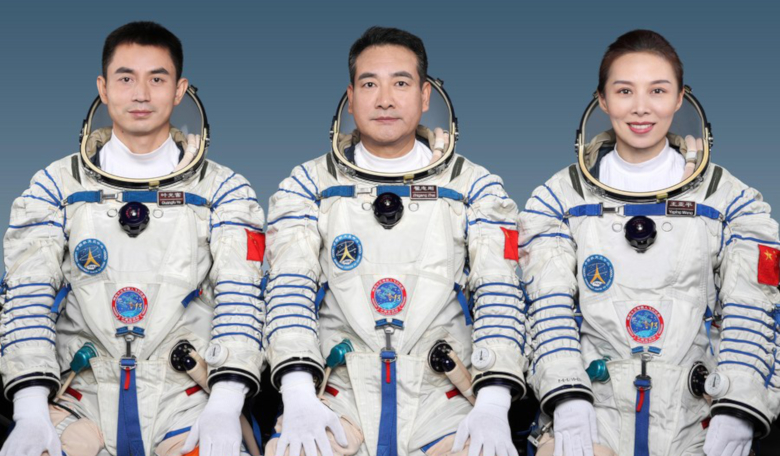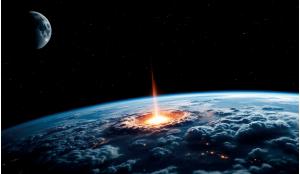China is getting ready to send three astronauts to live on its space station for six months in what will be the country’s longest crewed mission to date.
Set to launch at 12:23 am (Beijing time) on Saturday, the Shenzhou-13 spaceship carrying the three taikonauts is expected to blast off on a Long March-2F rocket from the Jiuquan Satellite Launch Center on the edge of the Gobi Desert in northwestern China.
The crew consists of commander Zhai Zhigang, military pilot Wang Yaping and newcomer Ye Guangfu. Zhigang, 55, is a former People's Liberation Army (PLA) fighter pilot who in 2008 performed the first spacewalk by a Chinese astronaut.
Yaping, 41, will become the first woman astronaut to visit the nation's space station. She previously became China's second woman in space in 2013, meanwhile former Air Force pilot Guangfu, 41, will be traveling into space for the first time.
Speaking to reporters through a glass barrier at the Jiuquan base during a press conference Thursday, Zhigang said the length of the mission would be a challenge, but one he was confident they were prepared to meet.
"After almost two years of training (together), our crew members now know each other well and have a tacit understanding. I believe that with the power and wisdom of our team, (we) will definitely resolve all difficulties," he said.
Although this will be the first crew to experience a six month stay at the space station complex – Shenzhou-12 crew returned after 90 days – it will not be the last, as all subsequent missions are expected to be of the same duration said Lin Xiqiang, deputy director of the CMSA.
It will be physically and psychologically challenging to work and live in a zero-gravity environment for six months, Xiqiang said, adding that the astronauts will have in-orbit exercises and mental health support to help them stay at their best.
During their stay, the team will continue the work of the Shenzhou-12 crew, and will also complete "two to three" spacewalks to install components needed for future construction work, Xiqiang said.
Having been excluded from the International Space Station largely due to US objections about national security – China's military runs its space programme, an aspect that does not sit well with US Congress – China says it has plans to carry out more in-depth international cooperation on its space station, making it a space lab for the benefit of all humanity.
"The construction of China's space station will provide a better platform for wider international cooperation, including joint astronaut flights," Xiqiang said.
He said the cooperation on astronaut selection and training has already taken place between China and foreign countries.
Guangfu for example became the first Chinese astronaut in 2016 to attend ESA's underground astronaut training course CAVES (Cooperative Adventure for Valuing and Exercising human behavior and performance Skills).
As it sounds, CAVES involves astronauts from around the world staying underground in a Sardinian cave for six days to work on multi-cultural approaches to leadership, teamwork and decision-making in a space-like environment.
When asked about the experience of CAVES at Thursday’s press conference, Guangfu said exploring the space and building a space home are the common mission and pursuit of all astronauts. "I am looking forward to meeting with my international counterparts in space and wish they can pay a visit to China's space station as a guest."











